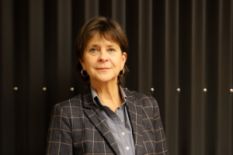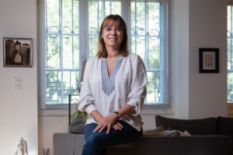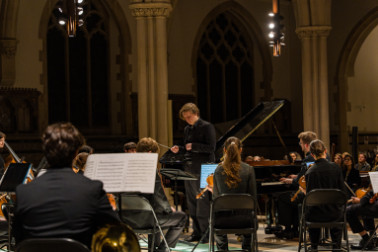Starting from the 24th of February 2022, from the very beginning of russian invasion of Ukraine, people around the world have been donating goods to support Ukraine. However, in times of war and the rapid speed of events, it was hard to know what was needed, where and when. Supplies were often delivered to the wrong place. This led to stockpiles in one place, while people in other cities were left without. The need to structure this process in order to avoid the chaos was so urgent, as the help itself. The british platform Frontline.Live Ukraine created by volunteers, became a convenient and transparent tool for quick organization of this process.
Catalina Moisescu and Andra-Lucia Martinescu, have a strong bond. Former highschool classmates in Romania, they are now public figures, experts in international relations, co-founders of the diasporainitiative.org and humanitarian aid and policy officers for the UK award-winning platform frontlineliveukraine.org. We met Catalina in the Swiss Parliament at the Ukrainian forum “The Unthincable Endures'' last fall. She actively called for humanitarian assistance to Ukrainians.
Frontline.Live Ukraine - british volunteers' platform which allows transparent logistics for humanitarian help to Ukrainians from international donors. The platform maps actual information about needs of Ukraine, verifies nonprofits and communities report needs.
Suppliers and donors can track the needs in real-time, sort them using filters, and to target logistics accordingly, so they can be sure their supplies are being delivered to the right places at the right time. Where it is needed.
Andra-Lucia Martinescu is pursuing a part-time doctorate in International Relations at University of Cambridge, focusing on the history of ideas and geopolitics. She previously worked for the British Army, specializing in operational research, and for think-tanks. Since 2018 Andra has dedicated herself to researching diaspora, civil society, and good governance issues. She is particularly interested in social networks and their strategic capacity to foster change. Together with Catalina Moisescu, founded The Diaspora Initiative in 2018. Andra-Lucia coordinates the humanitarian ecosystem for Frontline.Live Ukraine.
"So please spread the word, if organizations in Ukraine need support, they have to make their requests visible to potential donors and suppliers abroad."
Catalina Moisescu is an international relations researcher, with an expertise in Eastern Europe, and a part-time Ph.D candidate in International Relations at the University of Fribourg . As Russia launched the full-scale attack on Ukraine on February 24th, 2022, Catalina, together with Andra-Lucia, and under the umbrella of Katz Kiely the CEO of Frontline Live, joined forces and developed Frontline.Live Ukraine.
- You have launched such a powerful and important project for our country. I was touched by this project. During the meeting in the Swiss Parliament I even thought that you are Ukrainians, you were speaking quite directly. What can you say about the importance of such events?
Catalina - At a time of misinformation, armchair politics and “compassion fatigue” an informed debate, thorough analysis and “on the ground” research are crucial if we want to address misinformation, and enhance the support of the international community towards Ukraine. The Forum addressed all these and more.
It is instructive to remind ourselves that ongoing international support is vital for Ukraine and for Europe as well (as many of the participants underlined during the Forum). And one way to achieve it is by raising awareness and imparting information – that is correct information - in a free and secure arena.
In regards to humanitarian assistance, together with Katz Kiely (the CEO of Frontline. Live - editorial), Andra-Lucia Martinescu, and volunteers, we created Frontline.Live Ukraine. We offer a transparent, secure and long-term humanitarian assistance platform that can be used by civil society and governmental institutions. While grieved by the war in Ukraine, I still found optimism in the conversations during the Forum. Ukrainians believe and fight so strongly for their victory, and the international community is there to help.
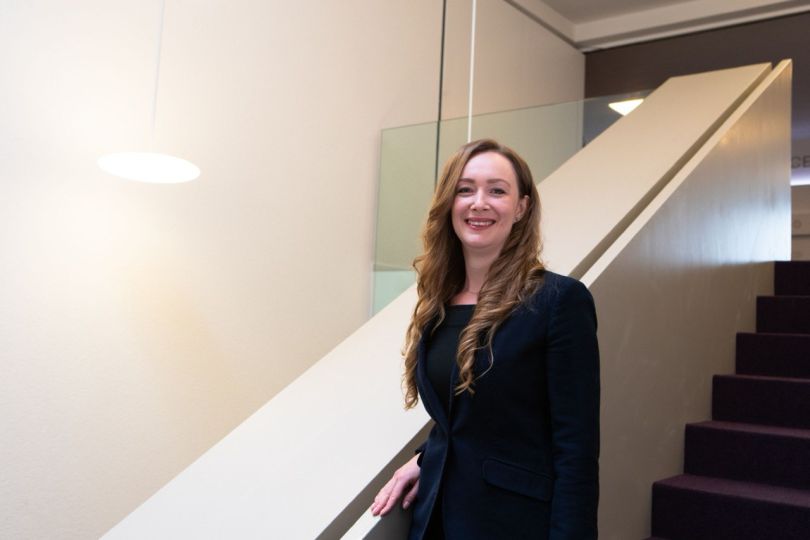
Catalina Moisescu
- How did you come up with the idea of Frontline.Live Ukraine?
Catalina - The Frontline.Live platform existed before the war, it was started during the COVID-19 pandemic. During the war we contributed to repurposing the algorithm and use our knowledge, networks and regional expertise. I have been to Ukraine before and during the war, Andra-Lucia as well. It was important for us to get involved in humanitarian relief and help your country.
When the war started everybody wanted to help. In Romania it was a big media debate around the war. There was daily coverage and many volunteers went to the frontline either at the northern border or the eastern one, the border with Odesa, to help the refugees entering Romania from Ukraine. Everybody wanted to help, everybody was sending donations, organizing all sorts of campaigns. It was a lot. So we looked around. We had discussions with the Romanian government, with some volunteers and some associations. We noticed that those humanitarian initiatives, including associations were repurposing their scope, or just people that wanted to help, had a short life span. They could sustain this kind of effort for weeks or a couple months maximum. This is when we decided to become involved and help grow a humanitarian project.
Andra-Lucia - Yes, a long term outlook… as this is a human tragedy, that is likely to continue as I have never seen a short war, unfortunately. That's what people don't understand: that the whole thing of being actively involved in humanitarian relief needs to continue because the war is likely to go on for a while. Everybody helps in the beginning. The war is not over and that is what we are trying to tell people. It's extremely hard, but we are prepared for long term action and that is what Frontline.Live Ukraine is for.
- What are the main tools of your platform? How is the work organized?
Andra-Lucia - It's a small but effective coordination team that spans all the way from the UK to Ukraine. Katz Kiely and a group of wonderful volunteers successfully launched the first iteration of the platform during the COVID-19 pandemic, to address the shortage of protective equipment affecting frontline healthcare workers. Their previous experience proved invaluable for what we do now, and the team as a whole steers and drives our common vision. Catalina and myself, we both come from a different background, of applied conflict research. We’re used to being on the ground, conducting fieldwork and applying this regional expertise to inform decision-making at all levels. We were both honored to contribute and help develop Frontline into something that responds to realities on the ground. Basically, putting the best of our work into practice. And we see how the platform’s scope grew exponentially since February 2022. It is a global platform focused on multiple countries. How to coordinate the supplies coming from all of Europe, maybe even the United States? Sometimes donations can even pass through different countries; they can be sent from the UK to Germany and then to Ukraine, for instance.
- Do you support the delivery to the final point?
Andra-Lucia - Yes. We verify the suppliers registered on the platform. So only registered suppliers can actually see what kind of needs should be delivered. We had to set up the entire infrastructure from the ground because you need humanitarian corridors, you need to speak to public authorities; you need to assess logistics, you need to see, depending on the region, where you have to deliver the supplies because you can't just dump them on the border in Poland and expect them to get to the south of Ukraine, it's not just going to happen like that.
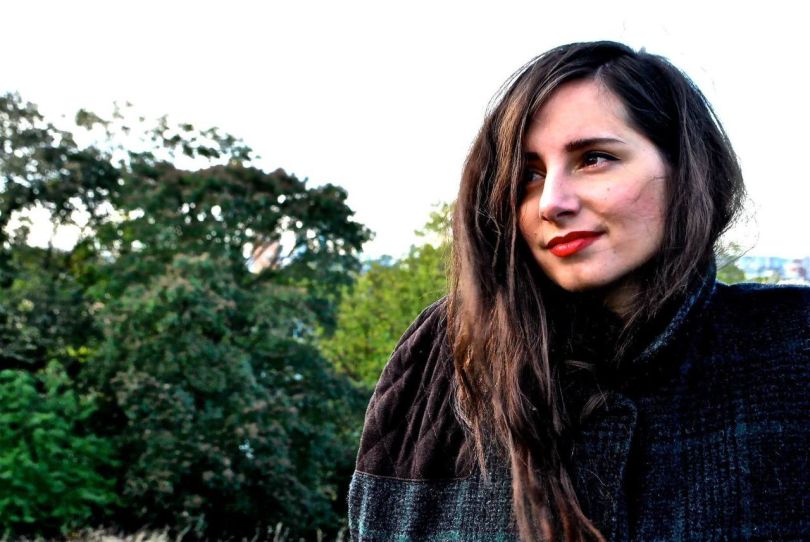
Andra-Lucia Martinescu
- Do you work with volunteers’ organizations?
Andra-Lucia - We place great importance on transparency. If we are going to work with big organizations all sides need to be transparent. It is crucial to know what has to be delivered, what organizations register needs and how we can ensure end-to-end distribution. In this respect, we go on the ground and assess humanitarian needs because it is important for people to meet you personally. We trust this initiative, and we work with people that are doers as well.
Catalina - We want to make sure that the work is done from A to Z. You can register as a supplier or register your needs. Everybody that registers on the platform is vetted.
For instance, we have calls with those who register, and we check the registration numbers of their organizations. Once we match the needs with what we can provide then we organize transportation and everything that is needed.
Andra-Lucia - As researchers we need to keep an open mind not going there like a Messiah, you have to listen to people and see what is going on and respect their wishes as well.
- As far as I understand, the main suppliers are from Ukraine, so you don't import goods and in this way you support the Ukrainian economy.
Andra-Lucia - All this happens from local suppliers based in Ukraine (especially food supplies) so this way we also support the local economy. Why would you get stuff from Europe (for instance food) and pay thousands for transportation costs when you can get more from Ukraine, support the local production and get fresh produce?
That's what we did for the crowdfunding campaign we organized in cooperation with OneUkraine, an Ukrainian-German association. Everything was locally sourced from Odesa region. OneUkraine, in partnership with us, identified the local suppliers, put together the quantities and the prices. They did a great job, conducting research, comparing prices and making sure that the local supplier is close to the delivery point. But we are constantly looking for new suppliers and local producers. The money is not going to our accounts, we have a partnership with OneUkraine, for the procurement side. We informed and sent the list of all organizations and their needs. They set up the crowdfunding page and now we are overseeing the procurement together. The process is accountable. Everything went through the platform as we extracted the needs, we coordinated with local charities, and we ensured the delivery of local supplies.
Now we are currently focusing on procuring medical equipment, contacting suppliers in Europe, including the UK. They have a surplus of stuff and instead of destroying or getting rid of it they could donate it to Ukrainian hospitals. For example, we just spoke to a person from Mykolaiv regional hospital and he sent us an updated list of needs. The needs were posted on the platform. Consequently we launched a crowdfunding campaign to cover the needs sent by the Mykolaiv hospital and others alike (https://www.frontlinemap.org/).
In the west we are connecting also smaller suppliers, independent ones. Through the platform they get a bit of structure. Not just taking everything to one organization but being able to help multiple organizations or hospitals in Ukraine. That's how people work so far. They partner with one organization and all the deliveries are sent there. We map, assess and try to fit multiple needs from registered organizations. We have about 30 right now (registered). So please spread the word, if organizations in Ukraine need support, they have to make their requests visible to potential donors and suppliers abroad.
"Ukrainians want to tell a story of resistance, the story of a community that survived, a story of freedom and liberation. It is very different from Western humanitarian narratives and calls to action."
Also, very good news on our side, in partnership with Manifest Mira CF (an organization based in Odesa, partner of the Norwegian Refugee Council - NRC) Frontline Live launched a humanitarian hub and collection point in the Greater London area, which enables our cluster to continue its efforts. As we all know, logistics are a massive impediment in sustaining humanitarian initiatives, that is why many organizations simply couldn’t continue helping. And of course, because partnerships are vital, we invite any organization based in the UK to use our infrastructure: just bring your aid to the collection point and we’ll ensure end-mile delivery. The collection point is effectively managed by Sascha Bunatyan, a lovely Ukrainian lady who has been living in London for many years now. Of course, she’s also part of the Frontline.Live team. Hope also rests in all this cooperation that comes to life, in times of crisis.
Catalina - In December, the International Organisation for Migration reported approximately 6 million Internally Displaced (IDs) people, many of them from the east. A significant number are now in Odesa and Mykolaiv. We identified the associations in these regions, we organized crowdfunding initiatives, and registered on the platform the needs of those people. It is important to mention that these associations cover not only the needs of the IDPs in these regions but also in other Oblasts.
- The war is unfortunately going on and we can see “compassion fatigue”. Nevertheless we must continue fighting and continue humanitarian support. This becomes a big historical challenge for Europe and the world. And a platform like FrontLine Live.Ukraine creates more trust, speed and real help.
Catalina - We were talking about this at the Forum in Bern. We are moving slowly towards reconstruction, hopefully. And it will be important for us and other international organizations to have reliable contacts in Ukraine because they are the ones that will be participating in the reconstruction. Also partners in Europe, including Romania, Switzerland, the UK or Germany.
Andra - You guys are heroic and very resilient. Sometimes people in the West when they want to help they talk about the crisis in undertones of pity, ‘Ukrainians are hungry’ etc. Maybe so, but it's not the story Ukrainians want to tell. Ukrainians want to tell a story of resistance, the story of a community that survived, a story of freedom and liberation. It is very different from Western humanitarian narratives and calls to action. Frontline.Live Ukraine is a long term platform with a long term outlook. It is very challenging because at the beginning everybody helped but now it is harder and harder to find supplies. It is just what we are doing. We are doing our best to help. Part of what we are doing is our respond to the “compassion fatigue”.
- You are friends and you have been doing important international projects together. Your first and main project is The Diaspora Initiative. Could you please tell us a few words about it. Since The Ukrainian diaspora is getting big now, this topic is becoming important.
Catalina - I have been working with Andra-Lucia since forever, we have been friends since high school and we both studied in Romania, in Campina, a town close to Bucharest. Andra is doing her PhD in Cambridge, I'm doing my PhD in Switzerland, both in international relations and conflict management. I focus on the Republic of Moldova and Transnistria.
Andra-Lucia - When we started this initially, we realized that there is such little understanding of the migrant/expat communities living in other countries. We have millions of Romanians living abroad but nobody knows how they associate, interact, or what their relationship is with the host country. So that was our first initial project and the stakeholders were very interested to find out more. We have a very big diaspora in the UK, over a million people but Romania has not provided until now consistent data. We have institutions for diaspora, but weak engagement policies, as institutional reforms happened mostly on the surface. So what we do is to bridge an understanding at different policy levels, regarding diaspora communities, how much money do they send home, how much they contribute to Romania's GDP, and what is their overall impact. It is very hard because there was no data when we started the project so everything happened from scratch, putting together a research project, gathering the data and analyzing. We developed the social network analysis algorithm to measure the impact of cooperation between the different diaspora organizations.
Catalina - We started The Diaspora Initiative in 2018 . We are mapping diasporas at an international level, making them more visible. In fact, we already published policy briefs on the Romanian diaspora in the UK and the British diaspora in Washington and Brussels. Now we are publishing a policy brief on the Romanian diaspora here in Switzerland. It would be very interesting to map the Ukrainian diaspora in the near future...
UKRAINE FORUM was initiated by the Ukrainian Society in Switzerland with the support of the Swiss-Ukrainian Interparliamentary Group, the University of Fribourg and the Institute of Mediation in Central and Eastern Europe. At this meeting the issues of support for Ukraine and the importance of expressing the Ukrainian position in the Swiss parliament.
